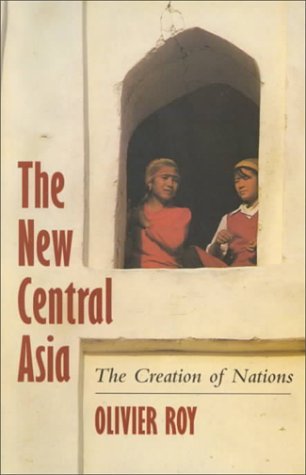
Examines the political development of central Asia, from Russian conquests to the "War on Terror" and beyond During the anti-Gorbachev coup in August 1991 most communist leaders from Soviet central Asia backed the plotters. Within weeks of the coup's collapse, those same leaders―now transformed into ardent nationalists―proclaimed the independence of their nations, adopted new flags and new slogans, and discovered a new patriotism. How were these new nations built, among peoples without any traditional nationalist heritage and no history of independent governance? Olivier Roy argues that Soviet practice had always been to build on local institutions and promote local elites, and that Soviet administration―as opposed to Soviet rhetoric―was always surprisingly decentralized in the far-flung corners of the empire. Thus, with home-grown political leaders and administrative institutions, national identities in central Asia emerged almost by stealth. Roy's analysis of the new states in central Asia―Kazakhstan, Turkmenistan, Uzbekistan, Tadjikstan, Kirghizstan and Azerbaijan―provides a glimpse of the future of an increasingly fragmented and dangerous region.
Author

A professor at the European University Institute in Florence (Italy); he was previously a research director at the French National Center for Scientific Research (CNRS) and a lecturer for both the School for Advanced Studies in the Social Sciences (EHESS) and the Institut d'Études Politiques de Paris (IEP). From 1984 to 2008, he has acted as a consultant to the French Foreign Ministry. In 1988, Roy served as a United Nations Office for Coordinating Relief in Afghanistan (UNOCA) consultant. Beginning in August 1993, Roy served as special OSCE representative to Tajikistan until February 1994, at which time he was selected as head of the OSCE mission to Tajikistan, a position he held until October 1994. Roy received an "Agrégation" in Philosophy and a Master's in Persian language and civilization in 1972 from the French Institut National des Langues et Civilisations Orientales. In 1996, he received his PhD in Political Science from the IEP. Roy is the author of numerous books on subjects including Iran, Islam, Asian politics. These works include Globalized Islam: The search for a new ummah, Today's Turkey: A European State? and The Illusions of September 11. He also serves on the editorial board of the academic journal Central Asian Survey. His best-known book, L'Echec de l'Islam politique; The Failure of Political Islam. It is a standard text for students of political Islam. Roy wrote widely on the subject of the 2005 civil unrest in France saying they should not be seen as religiously inspired as some commentators said. His most recent work is Secularism Confronts Islam (Columbia, 2007). The book offers a perspective on the place of Islam in secular society and looks at the diverse experiences of Muslim immigrants in the West. Roy examines how Muslim intellectuals have made it possible for Muslims to live in a secularized world while maintaining the identity of a "true believer."